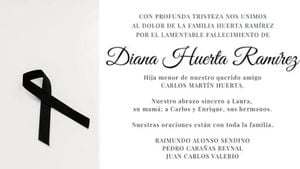Antipasha, or Red Hill, is a vibrant folk holiday with deep roots in pre-Christian Russia, celebrated on April 27, 2025. This day marks the end of Holy Week and heralds the beginning of the wedding season, connecting ancient traditions with modern celebrations. The holiday is intimately tied to the story of Thomas the Apostle, who, after initially doubting Christ's resurrection, came to believe upon seeing Him seven days later. This narrative gives Antipasha its alternate name, Fomin Day, and adds a layer of significance to the festivities.
Historically, Red Hill symbolizes the awakening of spring, as nature begins to emerge from its winter slumber. The name itself reflects this transformation; in ancient Slavic culture, anything beautiful was referred to as "red," which meant "beautiful" and "blooming." The hills, or "gorka," where the first grass appears, were seen as particularly radiant spots, thus earning the holiday its poetic name.
As the first Sunday after Easter, Antipasha is a time of joy and communal celebration. After the solemnity of the Great Lent and Holy Week, this holiday opens the door to festivities, particularly weddings. Traditionally, many couples eagerly await this day to tie the knot, as it is believed that those who marry on Antipasha will enjoy a happy and enduring union.
On this day, young people gather to partake in various merriments. The atmosphere is filled with laughter and music as boys and girls seek companionship. Young women adorn themselves with bright ribbons, showcasing their talents through singing and dancing, while young men engage in games to display their strength and agility. This lively interaction fosters a spirit of community and connection.
In addition to the joyous celebrations, Antipasha is steeped in traditions that include light-hearted fortune-telling. One popular custom involves rolling Easter eggs down hills. If an egg rolls smoothly and unharmed, it is believed to foretell a fortunate year ahead for the person who rolled it. This playful practice adds an element of hope and fun to the day's festivities.
However, despite the celebratory nature of Antipasha, certain superstitions dictate behaviors on this day. It is considered bad luck to be alone at home, especially for young singles, as isolation is thought to invite long-term loneliness. Other prohibitions include engaging in arguments, wishing ill upon others, harming people or animals, cutting hair or nails, working in the garden, and discarding food. Visiting cemeteries is also frowned upon, as folk beliefs suggest it may bring misfortune, even though there is no formal church prohibition against it.
The intertwining of ancient customs and Christian beliefs enriches the meaning of Antipasha. While it serves as a continuation of the Easter celebration, it also reflects a deep-seated appreciation for nature and the cycles of life. The holiday encourages people to embrace the beauty of spring and the joy of togetherness.
As families and friends gather to celebrate, exchanging warm wishes and heartfelt greetings is customary. Those who partake in the festivities often express their affection through thoughtful messages, reinforcing the bonds of kinship and friendship.
In summary, Antipasha, or Red Hill, is much more than a simple holiday; it is a celebration of life, love, and the natural world. It invites people to reflect on their connections to one another and to the earth, reminding them of the joy that comes with renewal and togetherness. The vibrant traditions associated with this day continue to resonate, illustrating the enduring power of cultural heritage.




